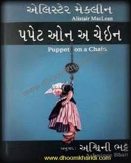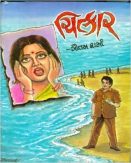You must be logged in to post a review.
JAY SOMNATH(જય સોમનાથ)
by Kanaiyalal Munshi
₹260.00
Description:
“Jaya Somanath is a historical romance written by Kanhaiyalal Maniklal Munshi. The shrine of Lord Somanath at Prabhas is a very holy place and people flock here for darshan and prayers. Chaula is a very young temple dancer when the story begins. She is just eighteen and has the honour of dancing in front of the Lord on an auspicious day. She is applauded by everyone. She comes across Bheemdev and falls in love with him. The temple is destroyed by Mahmud of Ghazni and this book deals with the historical facts woven interestingly with a story.
Jaya Somanath is the story and heroism of Bheemdev and the love of the temple dancer Chaula for him. The story tells of the mortal crisis which Gujarat passed through when Sultan Mahmud of Ghazni attacked and destroyed the sacred temple of Somanath. It is a moving and fascinating story of Gujarat’s fight to save its honour.”
About The Author
Kanaiyalal Maneklal Munshi (30 December 1887 – 8 February 1971), popularly known as K. M. Munshi, was an Indian independence movement activist, politician, writer and educationist from Gujarat state. A lawyer by profession, he later turned to literature and politics. He was a well-known name in Gujarati literature. He founded Bharatiya Vidya Bhavan, an educational trust, in 1938. Munshi was also a litterateur with a wide range of interests. He is well known for his historical novels in Gujarati, especially his trilogy Patan-ni-Prabhuta (The Greatness of Patan), Gujarat-no-Nath (The Ruler of Gujarat) and Rajadhiraj (The Emperor). His other works include Jay Somnath (on Somnath temple), Krishnavatara (on Lord Krishna), Bhagavan Parasurama (on Parshurama), and Tapasvini (The Lure of Power) a novel with a fictional parallel drawn from the Freedom Movement of India under Mahatma Gandhi. Munshi also wrote several notable works in English.









Reviews
There are no reviews yet.